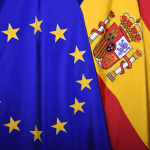As humanitarian needs continue to rise globally, the EU maintains its commitment to support those in need by adopting its initial annual humanitarian budget of €1.7 billion for 2023.
Human-induced humanitarian crises, resulting from wars with often widespread violations of international humanitarian law, conflicts or outbreaks of violence are the main source of humanitarian needs in the world. The EU’s humanitarian assistance helps millions of vulnerable people, including forcibly displaced people or trapped populations, as well as host communities. The needs resulting from such crises are often further exacerbated by disasters triggered by natural hazards, such as drought or floods, fuelled by climate change.
EU humanitarian aid in 2023 will be allocated as follows:
- €207.8 million will be directed to Southeast Europe and the European Neighbourhood addressing mostly the consequences of Russia’s war of aggression in Ukraine, as well as funding projects for ongoing needs in the Western Balkans, the Caucasus, and the effects of the Syria crisis in Turkey.
- €181.5 million will support those affected by placed by conflict, insecurity, forced displacement and climate shocks in the Sahel (Burkina Faso, Mali, Mauritania, and Niger), the Central African Republic and the Lake Chad basin (Chad, Cameroon and Nigeria), which result in large-scale displacement, disruption of livelihoods and lack of access to basic services.
- €330.7 million go to programmes in East and Southern Africa to address the needs of the people affected by long-term conflict in the Democratic Republic of Congo and those displaced by climate change and armed conflicts in Sudan, South Sudan, Uganda and the Horn of Africa (Djibouti, Ethiopia and Kenya).
- €382.2 million of EU humanitarian funding will be allocated in the Middle East and North Africa to address the ongoing regional crisis in Yemen, Syria and its neighbouring countries, as well as the critical situation of the Sahrawi refugees.
- €237 million in humanitarian assistance will help the most vulnerable populations in Asia and Latin America. In Asia, the funding will address the Afghanistan and Rohingya crises (Bangladesh and Myanmar) as well the impact of climate change in the region. In Latin America and the Caribbean the EU will continue its support on the impact of the crisis in Venezuela, the humanitarian consequences of the armed conflicts in Colombia as well as pervasive violence in Haiti, and Central America and Mexico.
- €141.5 million will be used to answer to sudden onset emergencies in 2023
- €122 million are reserved for unforeseen humanitarian crises that can arise throughout the year.
- €108.2 million will be committed to horizontal activities, innovative projects and policy initiatives.
Since climate change is increasing communities’ vulnerability to humanitarian crises, funding will also those in disaster-prone countries to prepare better for various natural hazards, such as floods, forest fires, earthquakes, and cyclones.
Background
The European Union has been providing humanitarian aid since 1992 in over 110 countries, reaching millions of people across the globe each year. EU assistance is delivered through humanitarian partner organisations, such as European humanitarian non-governmental organisations, international organisations (including UN agencies), and specialised agencies in the Member States.
The EU closely tracks the use of EU funds via its global network of humanitarian experts and has firm rules in place to ensure funding is well spent.
In 2021 the European Commission has published a Communication proposing to strengthen the European Union’s global humanitarian impact in order to meet the substantially rising humanitarian needs exacerbated by the COVID-19 pandemic. The Communication proposes a series of key actions to expedite the provision of humanitarian aid by expanding the resource base, supporting a better enabling environment for humanitarian partners and addressing the root causes of crises through a ‘Team Europe’ approach. It highlights a renewed focus on international humanitarian law (IHL) and also sets out to tackle the dramatic humanitarian impact of climate change.

Cost of living crisis: Europeans expect additional EU measures |







Leave a Reply